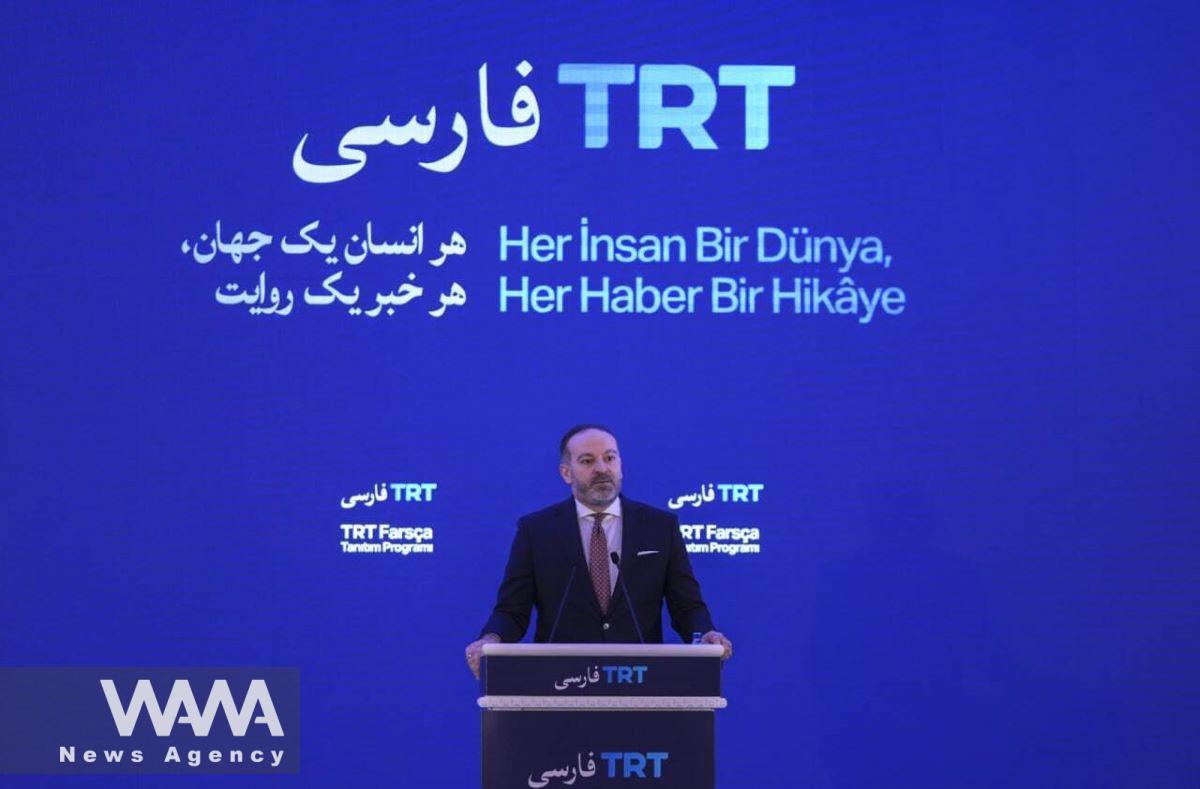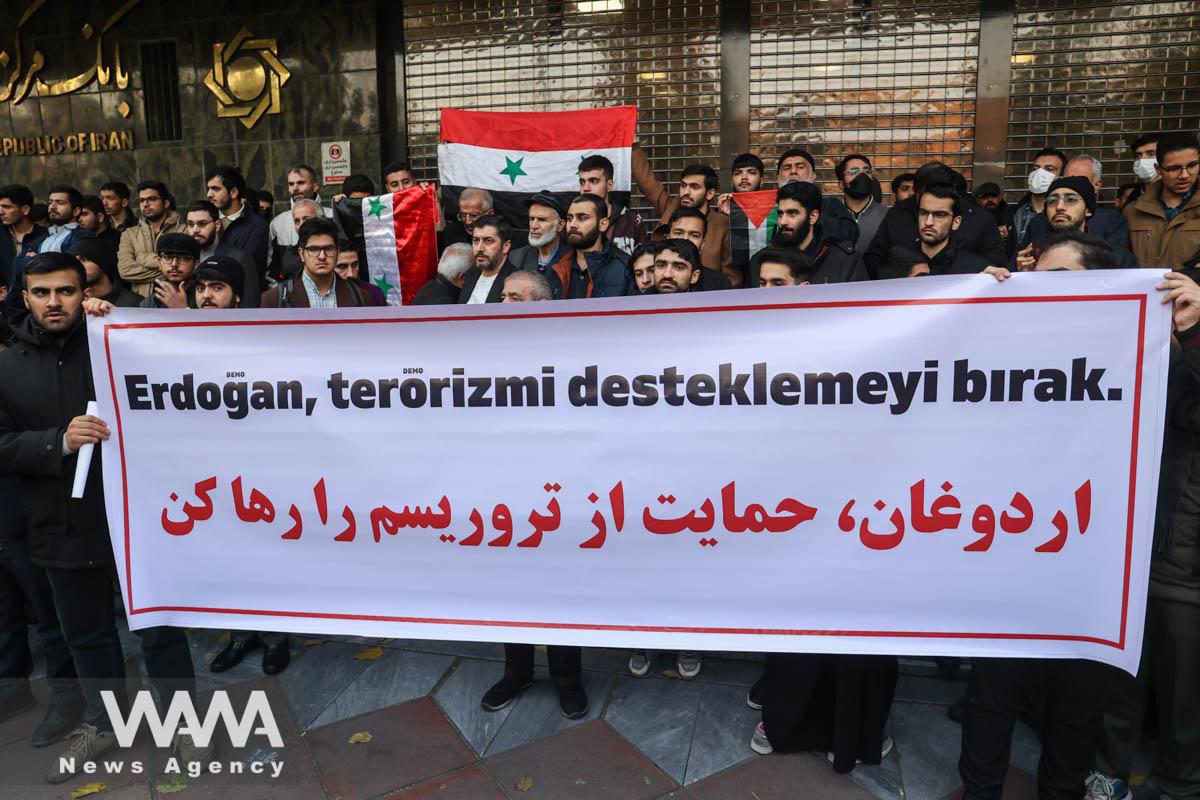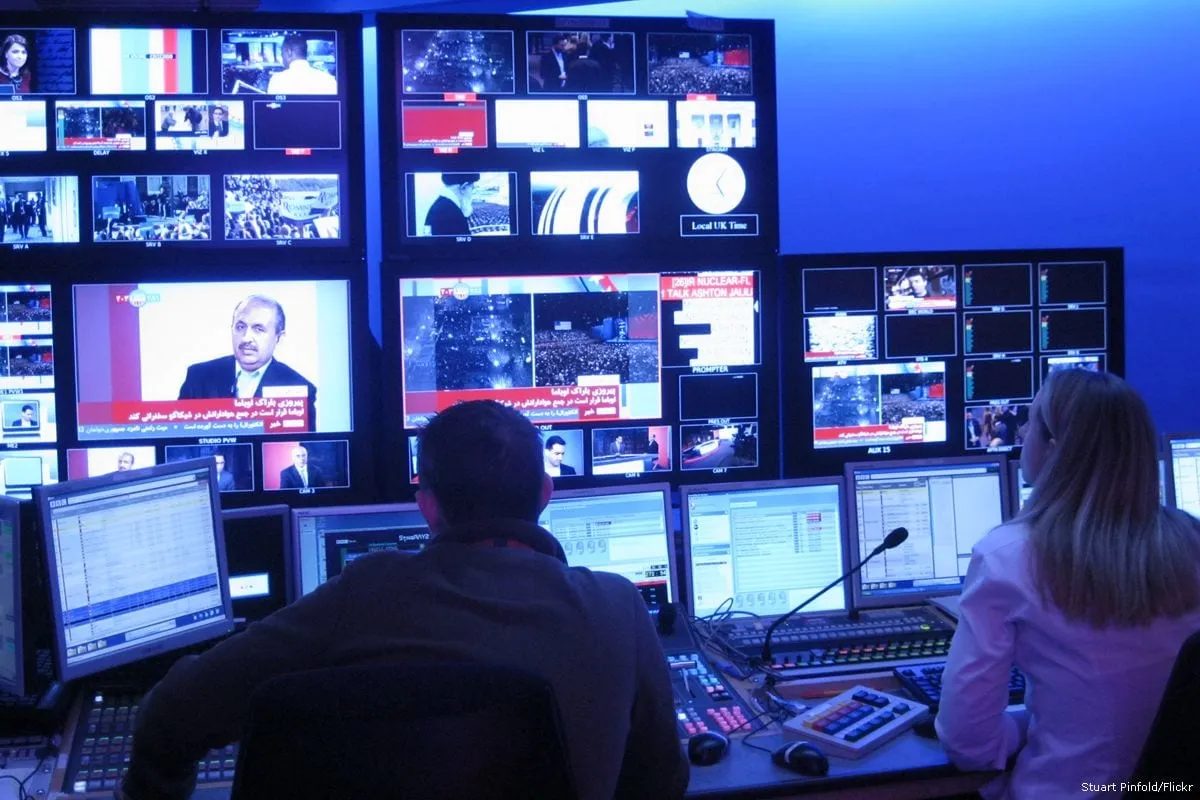Turkey’s TRT Farsi: Effort to Expand Cultural and Political Influence in Iran
WANA (Dec 21) – In recent years, Turkey has adopted a novel approach to public diplomacy, aiming to expand its cultural and media influence on the international stage.
This strategy has not only sought to strengthen the cultural identity of Turks beyond the country’s borders but has also served as an effective tool for conveying Turkey’s political and social narratives.
Ankara has launched and expanded television networks in various languages to present its perspective on significant historical and political issues to audiences on regional and global platforms.
These narratives are closely tied to the Erdoğan administration’s neo-Ottoman policies, which aim to revive Turkey’s historical influence across the Muslim world and rebuild Turkish cultural identity.

An Iranian woman holds a picture of Turkish President Recep Tayyip Erdogan and Israeli Prime Minister Benjamin Netanyahu during a gathering to protest against the Turkish government’s claim of backing the Islamist militant group Hayat Tahrir al-Sham (HTS) outside of the Turkish Embassy in Tehran, Iran December 2, 2024. Majid Asgaripour/WANA (West Asia News Agency)
Television networks have been instrumental in advancing these policies, striving to project a positive and appealing image of Turkey and its culture.
The launch of the Persian-language section of Turkey’s state television network (TRT Farsi) to influence Iranian audiences has once again highlighted Turkey’s relations with Iran and Ankara’s approach toward Tehran.
Over the past two decades, since the rise to power of Turkey’s Justice and Development Party (AKP), public diplomacy aimed at cultural influence has become a key tool in Ankara’s foreign policy, with media diplomacy gaining particular prominence. However, until now, this tool had not been directly used against Iran.
In this context, the recent launch of TRT Farsi marks a significant development in Iran-Turkey relations. This move is noteworthy not only for its media impact but also due to the complex political and security dynamics currently at play in the region.
As over the past year, Turkey has aligned itself with Israel in military actions against Gaza and Lebanon and has engaged in overt collaboration with Tel Aviv and Washington to overthrow Bashar al-Assad’s government in Syria.
These actions have clearly targeted Iran’s regional interests and the Axis of Resistance, posing a potential threat to Iran’s national security.
Moreover, Turkey’s interventions in the Caucasus region have also raised serious concerns for Tehran, particularly given reports suggesting that Turkey’s intelligence services have supported Pan-Turk separatist movements.
In such circumstances, the launch of a Persian-language television network by Turkey is unlikely to be seen favourably by Tehran. This move is perceived as an attempt to exert cultural and political influence over Iranian audiences.

TRT Farsi. Social media/ WANA News Agency
Notably, the head of Turkey’s TRT network sparked controversy by stating: “We will launch the Persian TRT network by the end of this year. We are in the business of annoying Iran. We need to annoy Iran.”
These remarks clearly reveal the intent behind this initiative and could be perceived by Iran as a hostile act. Although detailed information about the content of this television network’s programs is not yet available, they are likely to include both cultural and political material.
Naturally, both types of content are, in some ways, at odds with Iranian culture and society. On the cultural and entertainment front, these programs promote a lifestyle and identity that conflict with Iranian history and traditions.
Politically, the content produced by this network is influenced by the Turkish government’s neo-Ottoman policies, with its perspective on regional and international developments differing significantly from that of the Islamic Republic of Iran.
Therefore, it is expected that the aforementioned television network will provide an interpretation of issues that contradicts the views and approaches of the Islamic Republic of Iran.
Given the recent developments in the region and Turkey’s actions aimed at undermining Iran’s interests, the launch of TRT Farsi is not merely a media initiative but a strategic move to expand Turkey’s political and cultural influence in Iran.
This move has the potential to escalate tensions between the two countries and add further complexity to their bilateral relations.

A group of Iranian students attend a gathering to protest against the Turkish government’s claim of backing the Islamist militant group Hayat Tahrir al-Sham (HTS) outside of the Turkish Embassy in Tehran, Iran, December 2, 2024. Majid Asgaripour/WANA (West Asia News Agency)













